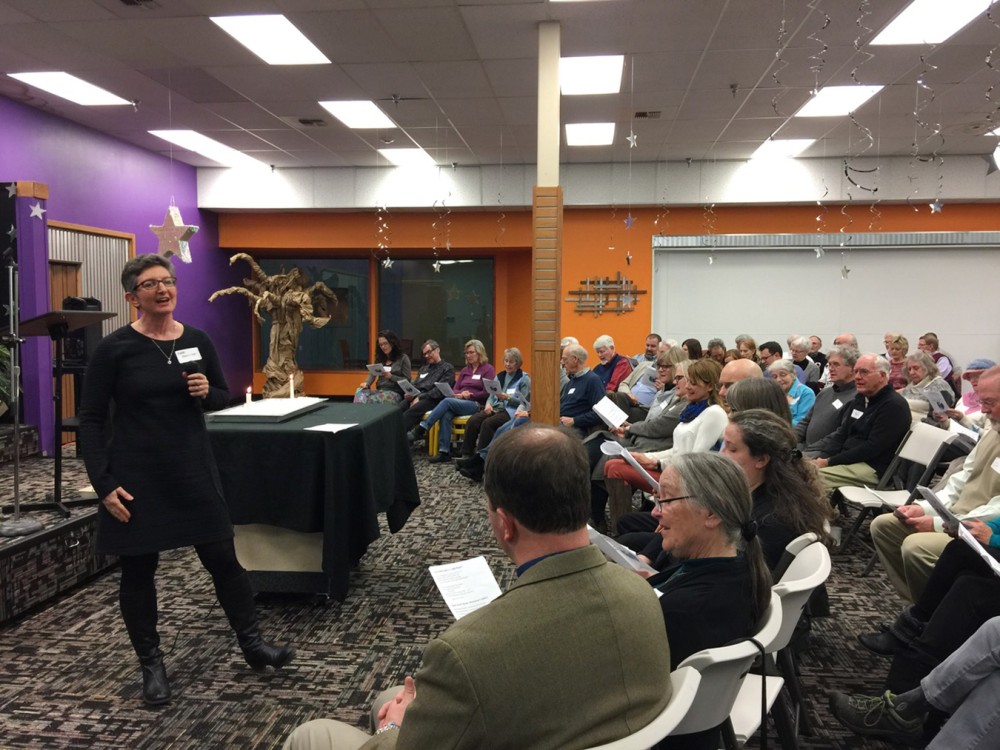Interfaith clergy group in Montana counters neo-Nazi hate
A clergy group formed supporting a rabbi in the ski resort town of Whitefish, where white supremacist groups targeted her and other local Jewish people.

What do you do when anti-Semites, stirred up by a guy you see at the local coffee shop and the gym, send you doctored pictures of your child’s face beneath the gates of Auschwitz? When they clog your phone lines with threats to “finish the job” for Hitler and gas you? When they promise to send an army of anti-Semites marching through your town?
If you live in the small ski resort town of Whitefish, Montana—where neo-Nazi Richard Spencer, who has been called “a kind of professional racist in khakis,” has put down roots—you fight back. But rather than match the haters slur for slur, you organize a kind of party for peace, one that draws on the faith traditions present across the Flathead Valley of northwestern Montana.
“I choose love,” sang Lutherans, Methodists, Presbyterians, Catholics, Mennonites, Baha’is, Unitarians, and Jews at a community center in the town of Kalispell, about 17 miles south of Whitefish. An informal support group of local clergy, which formed after neo-Nazi attacks on Whitefish, planned the gathering of about 150 people in April and hope to hold interfaith peace services regularly.





